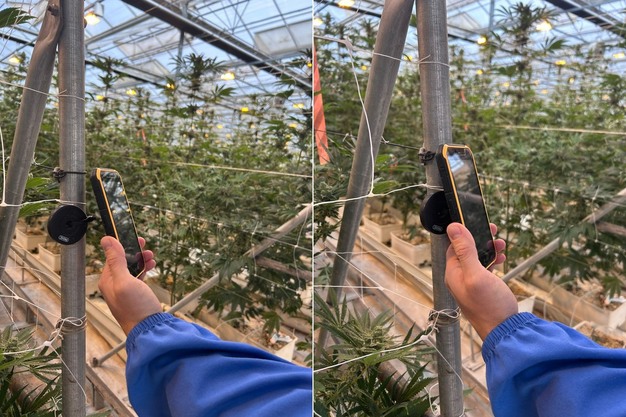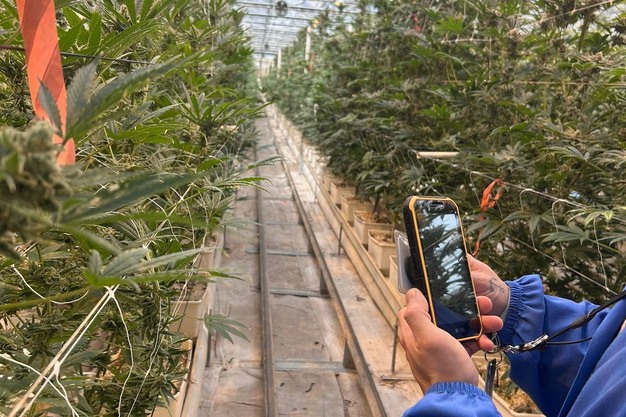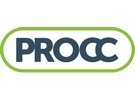Even though the cannabis industry is a subsector of the general horticulture industry, there are still some practices that cannabis growers have not fully adopted from their vegetable-growing colleagues. Jeffrey van Uunen from ProCC noticed this firsthand when he visited an Arizona-based cannabis greenhouse. "They told me they were spending lots of hours a week on cultivation tasks, but they weren't sure on what exactly," he explains. Efficiency in large-scale operations is paramount, especially in a market that is increasingly maturing, driving the cost per pound down. "The lack of data made it impossible to evaluate staff performance or to understand where improvements could be made," he continues. That's where the ProCC tracking system came into play.
Tracking down to the T
"We have a labor tracking system and a time tracking system," Jeffrey explains. "It's a combined system where people check in and out, telling us what they are doing and where they are doing it." This approach is common in vegetable farming but has now extended into the cannabis industry. "Everything you do, you register in the system, and we've been doing this with cannabis for two years now."

After implementing the system, the Arizona team shifted from tracking 20 tasks to over 200. "Now they can measure, and they know exactly where the hours are going." The results were immediate. "At first, they just wanted to track how many times people were curating things in the lab, tending to plants, defoliating, and so on, but within two or three months, everyone got used to checking in and out using their smartphones."
One of the main benefits of such a system is optimizing workforce management, not only in terms of better understanding who's doing a good job and who isn't. "When you can look at the numbers, it's different. They can see who is doing a good job and who isn't." This kind of insight allows the company to make informed decisions about keeping or letting go of employees based on performance rather than tenure.
The system has also changed how the company plans for the future. "Before, they were just guessing. They spent lots of hours and thought they were here or there. Now, they have the numbers, and they can plan accordingly." This clarity is vital, especially in an industry where costs are rising, and product prices are falling. "They had too many employees, and when I started almost three years ago, the prices for the product were just starting to go down. They needed to cut work hours but mainly had to figure out where." As the company scaled up, they set up a new packing house, and there they started using the ProCC system right away to maintain the same efficiency as in the cultivation part.
Tracking batches
In addition to workforce optimization, the company is working on a new feature to track down to the batch level. "We're working on something right now where you can track a batch of plants from start to finish." By knowing exactly how much time is spent on each batch, the company can calculate the labor cost and compare it to the revenue. "If a batch costs me $30,000 to grow but I make $40,000, I know exactly where the numbers stand."
The key to success, he says, is listening to clients. "If a client needs something, I'll ask my team how to fix it as soon as possible. We have short lines of communication, and we can make decisions quickly."

This kind of flexibility is critical in an industry that's constantly evolving. "In the neighborhood of this project, there were seven greenhouses. Now, there are just three." As companies face financial pressure, many are turning to systems like ProCC to understand where they can save money and improve efficiency. "When the money doesn't come back, that's when they start using software like ours."
For more information:
ProCC
Produktiestraat 25 , 3133 ES Vlaardingen, the Netherlands
+31 85 2500 311
[email protected]
procc.nl
